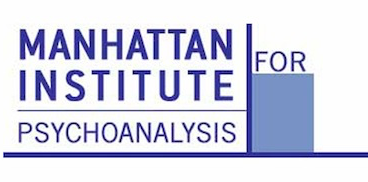For the next installment in our series on psychoanalytic community, MIP graduate Christopher Bandini traces his professional journey — from music therapist to social worker to psychoanalyst — and shares the moment at which he “truly became an analyst.”
I can still recall how I made the decision to enter training. I had graduated from social work school eighteen months before, and fortunately had secured a well-paying, but probably temporary, job outside the field. So, I knew I had a narrow window of opportunity to start.
I had worked at a fee-for-service clinic, where not everyone was an analyst, nor aspiring to be, and where such training was often disparaged. Many therapists got by with private supervision, often under the wing of an octogenarian, Svengali-like supervisor, who taught his charges how to run lucrative groups, charge high fees, and keep patients in treatment indefinitely. I felt strongly that that wouldn’t be the right path for me. I needed something more comprehensive and, well, more ethical!
I looked at several institutes, but the interpersonal approach at Manhattan Institute, at the time unavailable to social workers anywhere else, seemed the best fit. Night classes, quality faculty who also taught at NYU Postdoc and the White Institute, reasonable tuition, and a warm, welcoming community all contributed to my decision. Also, my analyst at the time, who had graduated from MIP, said positive things about the institute and knew how to ask interesting questions—that piqued my curiosity. This maybe more than anything else motivated me to go further.
Before becoming a social worker, I trained as a music therapist. Most music therapists worked in hospitals, but I worked in a unique outpatient clinic that combined creative arts modalities with verbal therapy. So, by the time I got to Manhattan Institute, I had done a fair amount of what some might call psychotherapy: a mishmosh, I suppose, of Freudian interpretation, object relations, and interventions learned from a social work textbook. I was sincere and well-meaning, and some people said they found benefit in working with me, but, really, I had no idea what I was doing.
That all changed as my training progressed. Gradually, analytic training became a full immersion; classes, my own three times a week analysis, and especially expert supervision deepened my understanding year by year. The forthrightness of Elke Epstein; the street-wise pragmatism of Sheldon Kastner; the provocative yet kind Irwin Hirsch; the integrity of Willa Cobert and the wisdom of Gil Nachmani. These are remarkable people I don’t think I would have met any other way than through institute training.
Clinically, I began to know why I said the things I said. I asked questions that led to more depth. I could work in the moment in the transference, using my own feelings for the benefit of the patient. I absorbed the literature and gained the theoretical foundation I previously lacked. In those five years of training, I feel I truly became an analyst.
In many ways, graduating from training is only the beginning. Perhaps the most important aspect of post-candidate life is the community you join, the family you now belong to. It’s not unusual in our work to hear of candidates’ negative experiences at other institutes—feelings of shame, control cases being rejected, rigid orthodoxies, and hidebound instructors. I always marvel at these accounts because I simply cannot relate. To me, MIP is the most welcoming of analytic institutes.
In the years since my graduation, I’ve participated in the MIP community in many ways. I’ve served on the colloquium and curriculum committees, and now I supervise and teach. Starting a private practice can be difficult and isolating, but the friendships I’ve made at Manhattan have always helped the work go more easily, whether meeting a colleague for coffee or attending a colloquium after a long week.
I’ve been fortunate to have articles published and to host a podcast in which I interview psychoanalytic writers. I often feel that I might not have had the confidence to write or to put myself in the public eye had it not been for my formative experiences in training at Manhattan Institute. For that and so much more, I am grateful.
To learn more about training at MIP, join us for an open house and brunch on Sunday, June 11th, 11 am-1 pm. For location information and to RSVP, please click here.
Christopher Bandini is a psychoanalyst in private practice in New York City. He is trained as a clinical social worker and music therapist, and is a graduate of the Manhattan Institute for Psychoanalysis. He teaches and supervises at several psychoanalytic institutes, including MIP and the Institute for Contemporary Psychotherapies (ICP).
He is also a co-host of the podcast interview series New Books in Psychoanalysis.








Leave a Reply
Your email is safe with us.